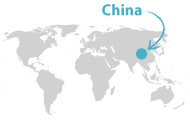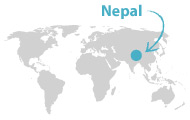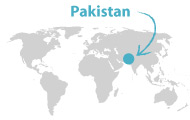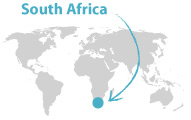Governance of tenure Newsletter
1. STORIES FROM THE FIELD: USING THE VOLUNTARY GUIDELINES
Using the Voluntary Guidelines in the Philippines
 Following the release of the ‘Review of Selected Land Laws and the Governance of Tenure in the Philippines’, the Asian NGO Coalition for Agrarian Reform and Rural Development (ANGOC) prepared two more studies under the Voluntary Guidelines:
Following the release of the ‘Review of Selected Land Laws and the Governance of Tenure in the Philippines’, the Asian NGO Coalition for Agrarian Reform and Rural Development (ANGOC) prepared two more studies under the Voluntary Guidelines:
- The Voluntary Guidelines on the Governance of Tenure of Land, Fisheries, and Forests in the context of National Food Security (VGGT) and the Proposed National Land Use and Management Act (NLUA)
- Principles of responsible agricultural investments: Philippines’ Multi-stakeholders Input to Committee on World Food Security
The papers identify existing gaps in policies and programmes on the governance of land and resource tenure in the Philippines, and familiarize stakeholders on the Voluntary Guidelines.
Read more: http://www.angoc.org/news/three-desk-studies-of-the-vggt-project
2. GETTING TOGETHER: EVENTS ON THE VOLUNTARY GUIDELINES
The Voluntary Guidelines at the IUCN World Parks Congress 2014
 Over 6,000 participants gathered at the International Union for Conservation of Nature (IUCN) World Parks Congress 2014 in Sydney, Australia during 12-19 November to share knowledge and innovation and set the global agenda for protected area management.
Over 6,000 participants gathered at the International Union for Conservation of Nature (IUCN) World Parks Congress 2014 in Sydney, Australia during 12-19 November to share knowledge and innovation and set the global agenda for protected area management.
The congress stream on ‘Supporting Human Life’ included 24 sessions of one and a half hours each, where some 100 presenters and many more attendants debated various topics related to protected areas, food security and livelihoods. Three sessions offered an opportunity to introduce the Voluntary Guidelines as an instrument to improve governance of tenure in protected areas.
A session organized by the United Nations Development Programme (UNDP) and the World Network of Indigenous Peoples and Local Community Land and Sea Managers (WIN) explored how the responsible governance of tenure can provide protection against the arbitrary loss of tenure rights experienced by local and indigenous communities, and finally to contribute to food security.
Read more: http://worldparkscongress.org/index.html
The Voluntary Guidelines at the Land Policy Conference in Africa
 The Voluntary Guidelines were prominent at the first Conference on Land Policy in Africa which took place during 11-14 November 2014 in Addis Ababa, Ethiopia under the theme ‘The next decade of land policy in Africa: Ensuing agricultural development and inclusive growth’. During the conference, the Voluntary Guidelines were at the core of many discussions related to the improvement of governance of tenure and their influence was widely discussed. Additionally, FAO and the African Land Policy Initiative (LPI) facilitated a session on the joint implementation of the Framework & Guidelines on Land Policy in Africa and the Voluntary Guidelines.
The Voluntary Guidelines were prominent at the first Conference on Land Policy in Africa which took place during 11-14 November 2014 in Addis Ababa, Ethiopia under the theme ‘The next decade of land policy in Africa: Ensuing agricultural development and inclusive growth’. During the conference, the Voluntary Guidelines were at the core of many discussions related to the improvement of governance of tenure and their influence was widely discussed. Additionally, FAO and the African Land Policy Initiative (LPI) facilitated a session on the joint implementation of the Framework & Guidelines on Land Policy in Africa and the Voluntary Guidelines.
Close to 400 representatives of governments, regional economic communities, parliaments, farmers, civil society, academia and research organizations, as well as private sector and development partners participated in the conference that was organized by the LPI.
Read more: http://www.uneca.org/clpa
Gambia: 20 Journalists receive training on the Voluntary Guidelines
 In November 2014, 20 journalists from both the print and electronic media gathered at a two-day forum on the content and context of the Voluntary Guidelines. The event was organized by the National Farmers Platform in collaboration with the National Coordinating Organization for Farmers Association of The Gambia (NACOFAG) under the auspices of the Gambian Ministry of Agriculture.
In November 2014, 20 journalists from both the print and electronic media gathered at a two-day forum on the content and context of the Voluntary Guidelines. The event was organized by the National Farmers Platform in collaboration with the National Coordinating Organization for Farmers Association of The Gambia (NACOFAG) under the auspices of the Gambian Ministry of Agriculture.
The forum was funded through an IFAD grant aimed at raising the awareness of civil society of the Voluntary Guidelines in four West African countries (Gambia, Mali, Mauritania and Senegal) in order to strengthen access and security of tenure of smallholders in these countries. By sharing the knowledge gained from the forum to their colleagues and to the wider community, journalists could play a key role in promoting and raising awareness about the Voluntary Guidelines in The Gambia.
Read more:
http://allafrica.com/stories/201411271629.html
http://www.ifad.org/pub/land/vg_land.pdf
National Workshops in China, Nepal, Pakistan and South Africa

China
A Workshop on Rural Land Registration brought together more than 80 participants from different levels of government, universities and research institutes, civil society organizations, private sector and international experts. The workshop was organized by the Institute of Agricultural Economics and Development, the Chinese Academy of Agricultural Sciences and FAO during 16-17 November 2014 in Beijing.
Over the next five years, the confirmation of the registration and certification of household land contract management rights in rural areas will be realized in the Rural Land Registration system. This concerns around one billion agricultural parcels. Several pilot projects have already been launched at provincial and municipal levels as precursors to test various approaches. This allows a more tailor-made approach in each region, as well as solutions for effective and efficient rural land registration.

Nepal
More than 70 participants representing government, civil society, academia, farmers’ and fisherfolks’ organizations and forest user groups gathered in Kathmandu during 2-4 December 2014 to discuss how the Voluntary Guidelines can be implemented in Nepal to ensure a more economically, socially and environmentally sustainable way to govern tenure of land, fisheries and forests of the country.
The Honourable Hari Prasad Parajuli, Minister of Agricultural Development, expressed the Government’s willingness to adopt the Voluntary Guidelines. He further added that their implementation is a must in the country. During the closing session, Dr. Prem Prasad Dangal, Member of National Planning Commission, expressed that the workshop’s conclusions and recommendations will be taken into consideration while formulating policies for lands and agriculture.
The workshop was organized by the Government of Nepal with support from FAO and facilitated by the Consortium for Land Research and Policy Dialogue (COLARP). The workshop was funded by the Department for International Development (DFID).

Pakistan
Officials of the federal, provincial and regional governments, representatives of civil society, academia and farmers took part in a national workshop on the Voluntary Guidelines held during 25-27 November 2014 in Islamabad. The participants identified improving governance of tenure as instrumental to achieving development objectives in Pakistan, including food security for all, environmental sustainability, poverty reduction and economic growth.
The participants discussed how the Voluntary Guidelines can be implemented in Pakistan to ensure a more economically, socially and environmentally sustainable way to manage land, fisheries and forests of the country. The Honorable Federal Minister for National Food Security and Research, Mr. Sikandar Hayat Khan Bosan, assured that the Government of Pakistan is committed to improving the lot of small farmers and will consider the recommendations from the workshop in the same light. The workshop was organized by FAO and the National Centre for Rural Development and funded by the United Nations Trust Fund for Human Security.

South Africa
The implementation process of the Voluntary Guidelines in South Africa started off with a seminar held in Johannesburg on 9-11 December 2014, where over 50 participants representing government, civil society, farmers’ associations, private sector and academia reviewed the Voluntary Guidelines’ key principles and engaged in a stock-taking exercise identifying country-specific priorities. The participants developed a roadmap to mainstream the Voluntary Guidelines and adopted a communiqué that recommends establishing a multi-stakeholder platform for implementation.
The workshop introduced other initiatives to support and implement the Voluntary Guidelines: the Land Policy Initiative where FAO and the United Nations Economic Commission for Africa (UNECA) joined synergies to strengthen effective land governance in Africa; a Gender and Land Learning Programme funded by DFID to support the implementation of the gender-equality principle; and a Belgium-funded project supporting awareness building and increased engagement of civil society and grassroots organizations. The event was organized by the Department of Rural Development and Land Reform and FAO, and it was financially supported by DFID.
3. PARTNERSHIPS WITH THE VOLUNTARY GUIDELINES
New video on notaries’ critical role in land tenure transactions
The Conseil supérieur du notariat (CSN) interviews Paul Munro-Faure, FAO's Deputy Director in the Climate, Energy and Tenure Division, on the collaboration between notaries and international organizations, with particular reference to land tenure transactions. The interview highlights the importance of this collaboration, given the close involvement of notaries at all levels of transactions that take place within tenure, from legislation drafting to notarizing, to implementing. Notaries and FAO have been working together since the original discussions about the Voluntary Guidelines.

4. TECHNICAL PUBLICATIONS ON THE VOLUNTARY GUIDELINES
Out now: Guiding Principles on Large Scale Land Based Investments
The Inaugural Land Policy Conference in Africa held in Addis Ababa witnessed the official launch of the African Union-led Guiding Principles on Large Scale Land Based Investments (LSLBI). The Guiding Principles aim to facilitate national land policy development and implementation processes. They are a basis for commitment, solidarity and collective responsibility by governments, other stakeholders and investors to improve the governance of LSLBI in Africa. The Guiding Principles draw lessons from related global instruments and initiatives on land governance, seeking to build on and complement such initiatives. These include the Voluntary Guidelines and the Principles for Responsible Agricultural Investments in the Context of Food Security and Nutrition.
Read the Guiding Principles
 Now available in Spanish: Improving governance of forest tenure
Now available in Spanish: Improving governance of forest tenure
The technical guide on ‘Improving governance of forest tenure’ is now available in Spanish in addition to English. This Practical Guide lays out a range of practical tools that can be used to shape better governance of forest tenure and it describes how to take action in four critical areas – understanding, organizing, engaging and ensuring – to improve decision-making about forest goods and services.
EN | SP
 Call To Universities
Call To Universities
Would you like to expand your academic programmes that address tenure? Our e-learning modules can be integrated in your courses!
For more information visit our webpage or email us at [email protected]
